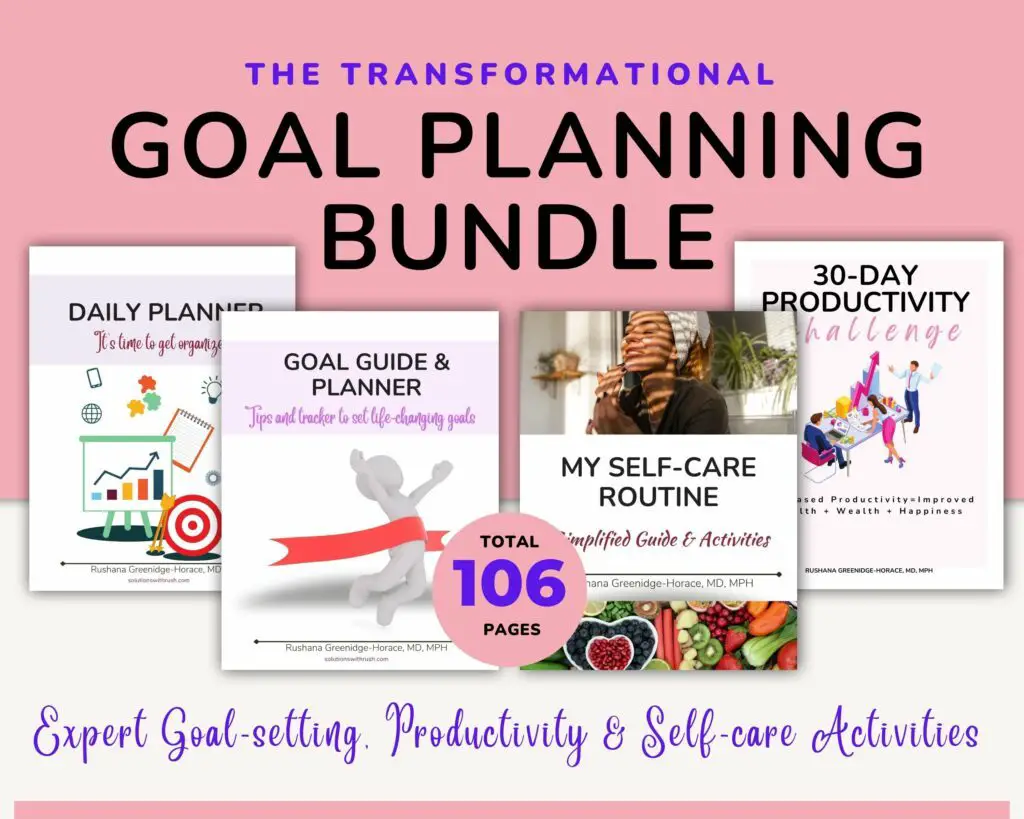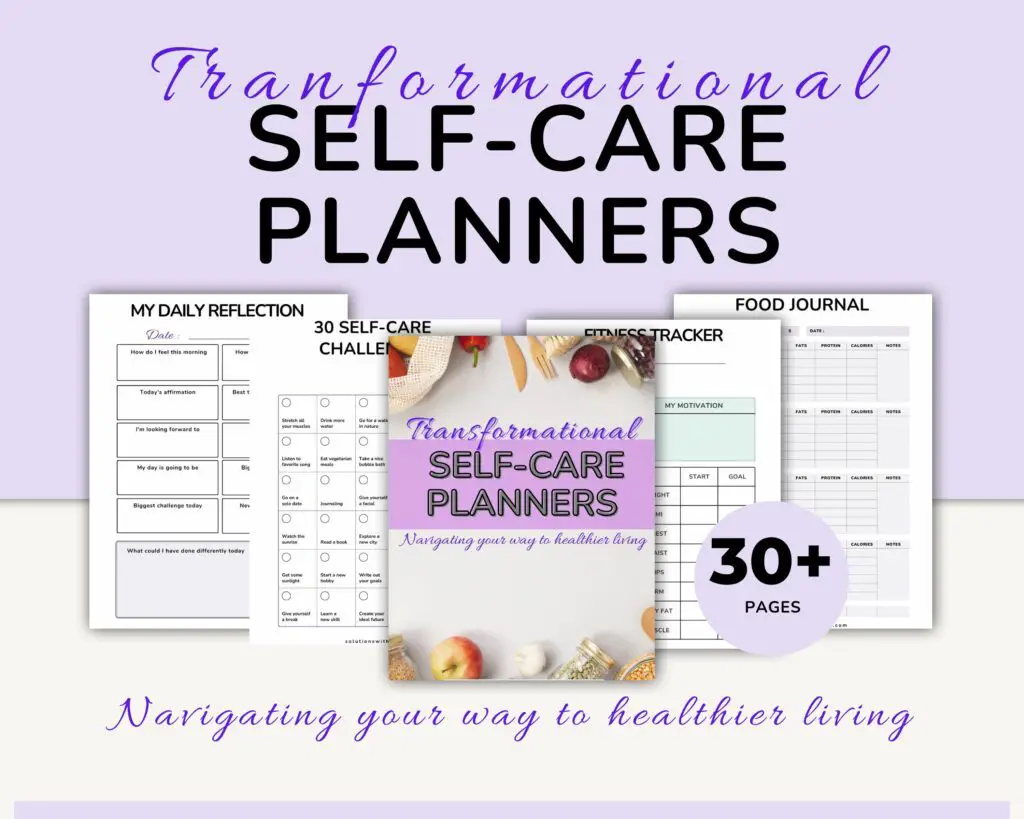We all know work is important. But, when is it just too much?
Are you always feeling like you need to be working? Do you feel guilty taking time off? If so, then you’ve probably asked yourself many times, ‘Am I a workaholic?’
According to research, workaholism is associated with decreased health and well-being and conflicts with family life and work.
In this blog post, I’ll explore the signs and causes of workaholism and how to stop being one.
Keep reading for more information.
- We all know work is important. But, when is it just too much?
- Ready to take command of your personal and professional aspirations?
- What does workaholism mean?
- Signs that I'm probably a workaholic
- So, am I a workaholic?
- What caused me to become a workaholic in the first place?
- Negative consequences of being a workaholic
- Tips to stop being a workaholic
- READY TO TRANSFORM YOUR SELF-CARE ROUTINE?
- Final words on am I a workaholic
- What causes burnout from work?
- How can I increase my productivity at work?

Ready to take command of your personal and professional aspirations?
This Goal planning bundle includes a total of 4 printables, each equipped with multiple worksheets, trackers, and expert advise to boost your productivity and help you take control of your personal wellness.
What does workaholism mean?
Do you find yourself working all the time, even when your not at work? If so, then there is a good chance that you are suffering from Workaholism. Workaholism is the tendency to work excessively and compulsively.
Workaholics tend to be perfectionists and feel guilty if they do not meet their own high standards of performance. They also have difficulty delegating tasks or letting go of control over projects and situations.
Unfortunately, this can lead to burnout and stress-related health problems.
Signs that I’m probably a workaholic
Assess if you agree or disagree with the statement below to analyze whether or not you’re a workaholic.
- I have little desire to go out with my friends and family because I prefer to get more work done.
- When in my personal life, I often find myself thinking about work.
- At work, I put in more hours than my peers and superiors.
- I am usually the first one at and last one out of my office.
- When asked how it’s going, I always tell co-workers that it’s going well, even though I’m not.
- I take on more work projects even if I’m already too busy.
- When spending time with family and friends, I often feel anxious and try to escape from it because all I can think about is getting back to work.
- If my job was transferable, I would readily accept a promotion or relocate if given the opportunity.
- The idea of not working is frightening to me and causes feelings of anxiety and depression.
- When I’m on vacation and unable to work or check e-mail, I find it difficult to relax and am unable to get out of the “work mode”.
- I often feel that there is not enough time in a day for me to do everything I want and need to do.
- My happiness is dependent on the status of my job or profession.
- Work and career are always at the top of your list.

“Don't confuse having a career with having a life.” ~ Hillary Clinton
So, am I a workaholic?
Notably, there are numerous tests and assessments to determine if you’re a workaholic including the Bergen Work Addiction Scale. The Bergen Work Addiction Scale is a tool used to measure an individual’s level of work addiction.
The scale consists of seven items, each of which is scored on a scale of 1 to 5 as follows:
1: Never
2: Rarely
3: Sometimes
4: Often
5: Always
The 7 questions included in the Bergen Work Addiction Scale are
- You think of how you can free up more time to work.
- You spend much more time working than initially intended.
- You work in order to reduce feelings of guilt, anxiety, helplessness and depression.
- You have been told by others to cut down on work without listening to them.
- You become stressed if you are prohibited from working.
- You deprioritise hobbies, leisure activities, and exercise because of your work.
- You work so much that it has negatively influenced your health.
Scoring of the Bergen Work Addiction Scale
An answer of 4 or 5 for at least four of these questions suggest that you’re likely a workaholic (Dronen, 2012).
But, you may already know this about yourself and have probably sincerely attempted to quit your work addiction multiple times with no success.
Fortunately, I have some suggestions for you to consider that might be able to further assist you. I sincerely wish that my suggestions will work for you.
But first let’s dive into some of reasons why you became a workaholic in the first place.
What caused me to become a workaholic in the first place?
There is no single cause for workaholism. Instead, it is typically the result of a combination of cultural, personality and cognitive factors, including a need for approval, a fear of failure, and a sense of perfectionism.
For many people, the roots of workaholism can be traced back to their childhood or adolescence. Maybe they were raised in a household where work was always the priority, or maybe they felt like they had to succeed in order to earn love and approval.
Whatever the case may be, these early experiences can set the stage for a lifetime of addictive work habits. Other causes of workaholism include mental health disorders like anxiety and depression, which can lead to an excessive need to achieve or control.
Work can become a way to numb out from difficult emotions or escape from reality. Additionally, some people become workaholics as a way to cope with trauma or unresolved pain.
By constantly keeping themselves busy, they are able to avoid facing the memories and feelings that are too difficult to deal with.
Ultimately, there is no one-size-fits-all explanation for why someone becomes a workaholic. It is usually the result of a complex interplay of factors.
Negative consequences of being a workaholic
Unfortunately, being a workaholic can have a variety of consequences, both for the individual and for those around them.
For one thing, workaholics tend to put others at a disadvantage, making it difficult for those in their personal or professional lives to compete or get their needs met.
Workaholics are also prone to health problems such as stress, anxiety, and sleep deprivation, which can lead to chronic conditions like heart disease and diabetes over time.
Additionally, being a workaholic may interfere with important relationships and take away from time that could be spent relaxing and enjoying life.
Ultimately, those who struggle with work addiction need to remember that taking a step back every now and then is essential for one’s physical and mental well-being.

“I’m pretty much a workaholic, but when you’re doing what you love it’s hard to think of a reason to stop.” ~ Ani DiFranco
Here’s a summary of some of the negative consequences of being a workaholic
- Low self-esteem / guilt / regret
- Poor time management skills resulting in less free time, lower quality of family life, friendships, relationships with co-workers, etc.
- Failure to nurture existing relationships (long-distance relationship, children / husband)
- Burnout and decreased productivity at work resulting in fewer promotions and raises over the years
- Lack of professional growth due to reluctance to take risks because you are so risk averse
- Less satisfaction at work because you feel as if your skills are not being developed and utilized to the fullest extent.
Tips to stop being a workaholic
Here are some of the best tips to help you stop being a workaholic:
- Make a plan to gradually decrease your working hours. For instance, commit to reducing work hours by 10% over the next year. If after six months, you have been able to stick with this plan, then increase it by another 10% if needed. Continue this pattern until you reach what you consider to be a more reasonable work schedule.
- Get rid of the motivational / inspirational quotes that to entice you to overwork yourself even more.
- Start saying “NO!” when colleagues ask for your help or advice on projects that are beyond the scope of your job description.
- Start meditating or doing some form of spirituality that is not related to work in any way. Do this for at least 10 minutes per day.
- Start reading a fiction book every night before going to sleep so that your mind is occupied with something entertaining instead of constantly thinking about your job or business.
- Surround yourself with positive people that understand your situation and are willing to help you in any way they can. Negative people will only make you feel worse about the fact that you are not working as much or doing as many things in life compared to them, so try to limit contact with these people.
- Consider going to therapy or counseling to discuss your feelings with a professional that is not going to constantly encourage you to work more, even if they do so subtly.
- If it’s too difficult for you to implement changes in your current position, consider looking for new roles. Read more on how to make a career change.
- Do not be afraid to tell people that you are burnt out, since they will most likely understand your situation.
- Invest in yourself by spending more time on yourself so that you can become a better person than the one who was addicted to work.
- Change your environment so that it is more relaxing and you do not have as many temptations to work.
- Establish a hard stop time for work and avoid the temptation of checking in on work projects after you do so.
Read also: 6 Expert strategies to recover from work burnout
According to Stanford English Professor Blakey, it’s important to take time for self-reflection in a world of busyness. This will improve your inner self and make you better equip to take on the world.
Take time to slow down to be kind and to be aware. Self-reflection will fill your life with purpose and meaning and help prevent burnout (Stanford News, 2018).
READY TO TRANSFORM YOUR SELF-CARE ROUTINE?
It’s time to make self-care a delight instead of a chore.
This incredible free resource comes packed with features for tracking everything from your daily water intake to how many steps you take.
Final words on am I a workaholic
It’s not uncommon for people to work long hours, but if you are feeling like a “workaholic” who can barely ever take time off or enjoy their life outside of the office, it may be time to reevaluate your priorities.
There are many signs that could indicate that you have crossed over the line from being an ambitious individual with good work ethic into someone struggling with addiction.
Take note of any changes in how much sleep you get, what foods you eat and whether or not there is less social contact than normal for example.
If these things sound familiar, it might be worth taking some time to figure out why they happen before more serious consequences arise.

“I’m a bit of a workaholic. When I feel like I’m not doing something, it drives me insane.” ~ Ashley Greene
Related topics
What causes burnout from work?
Work burnout is a state of physical, emotional, and mental exhaustion caused by extended periods of stress. It can be triggered by a variety of factors, including long hours, tight deadlines, unrealistic expectations, and a lack of control over one’s work.
Symptoms of work burnout include fatigue, irritability, insomnia, and an increased susceptibility to illness. If left unchecked, work burnout can lead to serious health problems, including anxiety and depression.
To prevent work burnout, it is important to identify the warning signs and take steps to manage stress levels.
This may involve setting limits on work hours, taking regular breaks, and communicating openly with coworkers and superiors.
By recognizing the signs of work burnout and taking action to prevent it, you can protect your health and well-being. Read more on the signs, causes and prevention of burnout from work
How can I increase my productivity at work?
This is a question that I get asked a lot, and there are a few key things that you can do to increase your productivity levels.
First of all, it is important to make sure that you are organized and have a clear plan for each day.
Make a list of everything that you need to do, and then prioritize your tasks so that you know what needs to be done first.
It is also important to take regular breaks, as this will help you to avoid burnout. When you are feeling stressed or overwhelmed, it is difficult to be productive. Read more tips to boost your personal productivity.
References
Andreassen C. S. (2014). Workaholism: An overview and current status of the research. Journal of behavioral addictions, 3(1), 1–11.
Dronen, S. O. (2012) Driven to Work. University of Bergen
Stanford News (2018) Stanford scholar encourages people to balance busyness with contemplation.
Rushana Greenidge-Horace












Leave a Reply